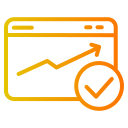
Advantages of Attending Free Coding Camps
Attending free coding camps provides a valuable opportunity for individuals from all backgrounds to enhance their technical skills and gain a competitive edge in today’s digital world. These camps are structured to make essential programming knowledge accessible without the barriers of cost, offering hands-on, real-world learning experiences. By participating, learners not only gain coding proficiency but also build confidence, explore potential career avenues, and join supportive, tech-savvy communities. With industry demands for coders on the rise, taking part in such programs can serve as an important stepping stone toward both personal and professional growth.
Accessible Learning for Everyone
Breaking Down Financial Barriers
Traditional education often demands significant investment, which not everyone can afford. Free coding camps provide an open door to individuals who would otherwise hesitate to pursue learning due to financial concerns. By removing the cost, these camps encourage broader participation and diverse representation in the tech industry. For students and career changers who might be deterred by tuition fees, free camps are a game-changer, allowing them to focus their energy on building skills rather than worrying about expenses. This democratization of learning not only benefits the individual but also enriches the tech community with a broader range of voices and perspectives.
Open to Diverse Backgrounds
Free coding camps often attract a mix of participants from various backgrounds, cultures, and life experiences. This diversity contributes to a dynamic learning environment where people with unique perspectives collaborate and grow together. By offering open access, these programs promote social equity, giving everyone an equal chance to develop in-demand technical skills. Diversity enhances discussions, fosters innovation, and breaks down stereotypes that may exist within the tech field. Ultimately, the inclusivity of free camps helps to bridge gaps in representation and empowers individuals who may be underrepresented in traditional coding spaces.
Flexible Entry Points for All Levels
Unlike some formal programs that cater mainly to those with prior experience, free coding camps typically design their curriculum for a range of learners. Whether you are a complete beginner just learning what code is, or someone looking to sharpen skills and branch out to new technologies, these camps offer entry points tailored to multiple levels. The flexible structure allows for a personalized pace and growth, ensuring everyone, regardless of starting point, can benefit. This accessibility encourages more people to take the first step into coding, knowing they’ll be supported regardless of their experience.
Hands-On Skill Development
The core philosophy of most coding camps revolves around active participation. Instead of overwhelming students with lengthy lectures or theoretical content, camps immerse learners in practical exercises right from the start. This hands-on approach accelerates comprehension, allowing participants to see the results of their efforts in real-time. By coding and creating, students build a stronger foundation and retain knowledge more effectively. Engagement with real coding tasks, from writing simple scripts to building full-fledged applications, equips learners with skills that are immediately applicable in real-world scenarios and future careers.

Cost-Effective Career Exploration

Unlike traditional degree programs or paid coding bootcamps, free coding camps enable individuals to explore their interest in technology without committing financially. This lack of tuition removes economic pressure, allowing participants to experiment and learn at their own pace. If someone discovers coding isn’t for them, they can exit the camp with no financial regret. Conversely, those who find passion in programming have identified a possible career direction without incurring debt or expensive tuition bills. The absence of a monetary barrier is especially important for those unsure about their ambitions, providing validation before pursuing more advanced or specialized paths.
Supportive Peer Community
Free coding camps often foster an environment where collaboration and mutual support are highly valued. Participants work together on group projects, help each other through coding challenges, and celebrate progress as a team. This spirit of camaraderie turns the learning process into a shared journey, where individuals are less likely to become discouraged. Such supportive peer communities can be crucial in sustaining motivation and building confidence, as learners realize they are not alone in facing challenges. The friendships and bonds formed often last well beyond the camp, forming the basis of ongoing study groups and collaborative efforts.
Access to Mentors and Instructors
Many free coding camps partner with experienced instructors, professionals, or even volunteers who act as mentors. These individuals provide not just technical guidance, but also practical advice about breaking into the tech industry. Having access to such mentors means participants can ask specific questions, receive feedback on their work, and gain exposure to industry best practices. This mentorship relationship can accelerate growth and give learners a clearer path forward, offering tips on job hunting, interview preparation, and personal development. Long after the camp ends, these connections can open doors to opportunities and further mentoring.
Creating Connections for Future Opportunities
The networking that takes place during a coding camp sets the stage for future collaborations and job prospects. Whether it’s partnering on open source projects, hearing about job openings from fellow participants, or securing references from instructors, these connections can make a significant difference. Many times, alumni stay connected through online communities, social media, or group chats, sharing resources and supporting one another’s career progress. This network becomes a valuable asset, enabling participants to tap into new roles, industry insights, and collaborative projects that may not have been available otherwise.

Overcoming Initial Doubts
Many people feel intimidated by the prospect of learning to code, questioning their abilities or whether they belong in tech. Free coding camps are structured to welcome beginners and create an encouraging atmosphere. With each small success—writing a line of code, fixing a bug, or completing a first project—learners gain confidence in their abilities. The realization that they can understand and master complex concepts transforms self-doubt into determination, leading participants to push past initial uncertainties. This newfound confidence can spill over into other areas of life, inspiring learners to face new challenges with a positive mindset.

Setting and Achieving Goals
Participating in a coding camp places learners in an environment where goal setting is built into the process. Achieving milestones, whether it’s finishing a module or presenting a capstone project, gives a tangible sense of accomplishment. This practice of setting, working towards, and realizing goals can become a lifelong habit, fostering a growth-oriented mentality. The discipline and motivation cultivated during camp are transferable to both professional and personal pursuits, providing a framework for tackling long-term ambitions beyond coding itself.

Building a Problem-Solving Mindset
Coding is fundamentally about problem-solving—diagnosing issues, experimenting with solutions, and iterating until success is achieved. Free coding camps immerse participants in this problem-solving environment from day one. As learners tackle increasingly complex programming puzzles, they develop resilience and resourcefulness. These skills are highly valuable, not just in technology but in everyday life challenges as well. Graduates of coding camps often report feeling more equipped to approach problems systematically, viewing obstacles as opportunities to learn and grow.
Flexible Scheduling and Learning Pace
Many free coding camps recognize that learners have varied schedules and offer courses in multiple formats—weekend workshops, evening classes, or self-paced modules. This adaptability means participants can find an option that fits their lifestyle, making it feasible for working professionals, students, or busy parents to join. By providing flexible time commitments, the camps ensure that more people can participate fully, learning at times most convenient for them while maintaining their other responsibilities.
Exposure to Industry Trends and Technologies
Free coding camps work hard to keep their curriculum aligned with the latest developments in the software industry. Learners are introduced to modern programming languages, frameworks, and trends such as AI, web development, or cloud computing. By engaging with contemporary material, participants gain a clearer understanding of what is in demand in the job market. This up-to-date curriculum ensures that the skills acquired remain relevant and valuable as learners seek employment or further education.
